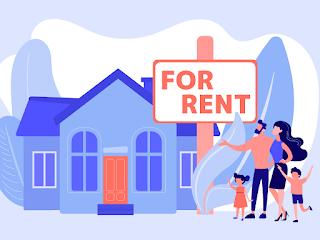6 Good Reasons to Get Renter's Insurance
When you rent an apartment or house, you need an insurance policy that covers your belongings. Your landlord's property insurance covers damage to the building itself; be it an apartment, a house or a semi-detached house. However, your personal property and certain liabilities are only covered by renters' insurance, which you as a renter must find and pay for. While 95% of homeowners have home insurance, only 41% of renters have home insurance.
Why do so few renters have insurance? explanation is that many people mistakenly assume they are covered by their landlord's policy. Another reason is that people underestimate the value of their property. If you just add up the value of your clothes and your electronics, it probably won't take you long to reach thousands of dollars.
One of the most overlooked reasons is liability: if someone gets hurt in your home - a friend, a neighbor, or the pizza guy - you could be sued. Even if you thought you didn't need insurance, here are six great reasons why you should get renters insurance.
It's Affordable
According to the National Association of Insurance Commissioners (One), the average rental insurance policy cost $180 in 2017 (NAIL figures). Your actual cost will depend on factors including the amount of coverage you need, the type of coverage you choose, the amount of your deductible, and where you live.
It Covers Losses to Personal Property
Protects against loss of your personal property, including clothing, jewelry, luggage, computers, furniture and electronic devices. The latest if you don't have much, you can quickly accumulate a lot more than you think; and way more than you want to pay to replace everything.
Even policies protect against a surprisingly long list of perils. A standard HO-4 policy designed for renters, for example, covers personal property loss from perils including:
- Aircraft damage
- Vehicle damage
- Explosion
- Falling objects
- Fire or lightning
- Riot or civil commotion
- Smoke
- Theft
- Vandalism or malicious intent Damage
- Volcanic eruption
- Weight of ice, snow or sleet
- Storm or hail
- Water or vapor damage from sources such as appliances, plumbing, heating, air conditioning, or fire sprinkler systems
Flood and earthquake damage are not covered by standard policies. A separate policy or supplementary insurance is required for these risks. A separate clause may also be required to cover wind damage in hurricane prone areas. And renters insurance doesn't cover losses caused by your own negligence or willful acts. For example, if you fall asleep with a lit cigarette and start a fire, the damage will most likely not be covered by the policy.
Your landlord may require this
Your landlord's insurance covers the building itself and the grounds, but not your belongings. More and more landlords are asking tenants to take out their own tenant insurance and are hoping for evidence.
This can be an idea from the landlord or an “order” from the landlord insurance company. The idea is that if tenants are self-insured, some liability can be shifted away from the landlord. If you need help finding or obtaining coverage, your landlord can help.
It Provides Liability Coverage
Liability Insurance is also included in standard renter insurance policies. This provides protection if someone is injured while you are in your home, or if you (or another insured person) accidentally injure someone. Pay court judgments and legal fees up to the policy limit. Most policies offer a minimum of $100,000 in liability insurance and a lesser amount for medical insurance. You can request (and pay for) higher coverage limits if needed.
To travel
Your belongings are insured against loss through theft and other covered losses wherever you travel in the world. Check your policy or ask your insurance agent for details on what constitutes "other covered losses".
May Cover Additional Living Expenses
If your home becomes uninhabitable as a result of one of the covered perils, your renter's insurance policy may cover "additional living expenses," including expenses associated with temporarily residing elsewhere, meals, and more. Check with your policy to see how long it covers additional living expenses and if it caps the amount the company pays.
The Bottom Line
Renters Insurance provides protection for your personal belongings, whether they're in your home, in your car, or with you on vacation. In addition, home insurance provides liability coverage in the event someone is injured in your home or if you accidentally injure someone.
Make sure you understand what your policy covers and ask your agent about available discounts, deductibles and coverage limits. For example, make sure you know if your insurance covers replacement cost (RCC) for your personal property or actual cash value (ACV).
For example, the first will pay to replace your 15-year-old carpet with a new one at market prices, the second will only reimburse you for the value of a 15-year-old carpet. Of course, RCC costs more.
When choosing renters insurance, make sure you choose a company that suits you best.







